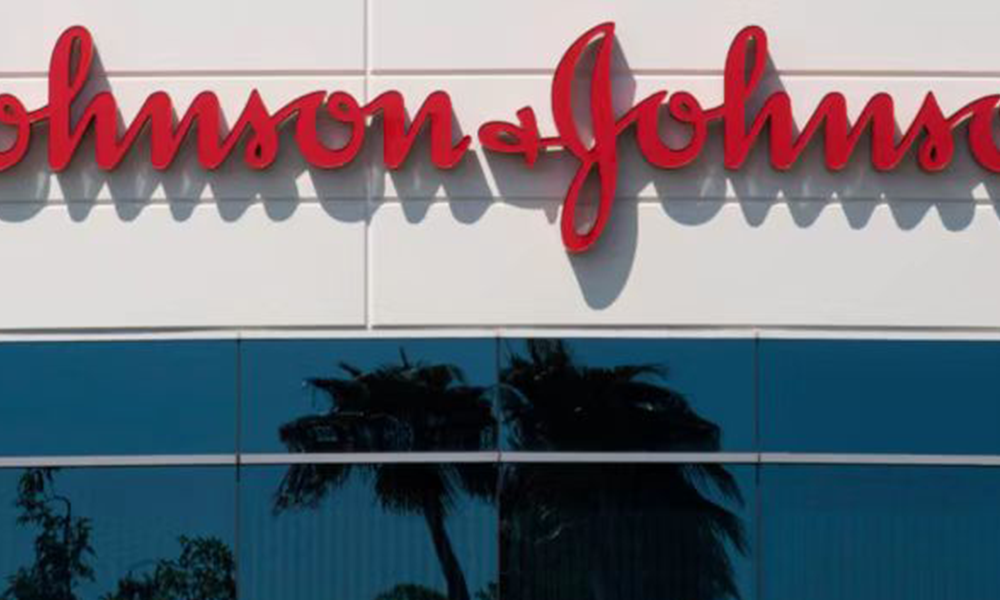
CBO reporter Li Jianzi
The irreversible impact of the Russo-Ukrainian war on the global beauty business continues. U.S. health giant Johnson & Johnson said it would no longer supply personal care products to Russia, citing the war's "growing scale of humanitarian crises."
Johnson & Johnson said it would continue to supply russia with essential drugs and medical equipment that are not subject to international sanctions, but will stop supplying products including Lee Stellin mouthwash and Aveeno skin care products.
01
Johnson & Johnson's beauty business withdraws from Russia
In the weeks since Russia launched its offensive against Ukraine in February, hundreds of Western companies have left Russia, dealing a blow to Russia's labor market and causing shortages of basic goods on supermarket and pharmacy shelves. So far, the Kremlin has blamed the shortage of drugs in Russian pharmacies on panic buying and hoarding by consumers, insisting there is enough inventory for everyone to use.
"The war in Ukraine has led to a devastating humanitarian crisis. As a global healthcare company, we believe that access to healthcare services is critical. "From the very beginning, Johnson & Johnson has been with the world in supporting innocent, affected people. We acted immediately to care for our staff and to uphold our responsibilities to patients in the region: donate $5 million to support the work of the International Rescue Committee (IRC) and the International Federation of Red Cross Societies (IFRC) in providing humanitarian assistance to refugees in border countries, among others. Product donations are available, including hygiene kits, health kits and medical supplies. In cooperation with the Ukrainian Crisis Relief Fund, we launched an unlimited matchmaking program for our global employees. ”
"At the beginning of March, we suspended all advertising, clinical trial registration and any additional investment in Russia. Now, due to the growing scale of humanitarian crises. Johnson & Johnson noted that the Group is taking these additional actions: increasing donations to support humanitarian aid efforts from $5 million to $10 million.
"We are providing medicines and medical equipment in the region, but have decided to suspend the supply of personal care products in Russia. We will continue to firmly support our employees and their families in Ukraine, including job security, transportation, accommodation and financial assistance. Above all, we continue to hope for a speedy solution and to continue to monitor the need for increased humanitarian relief. Johnson & Johnson said.
The damage caused by war is clearly mutual.
Since the outbreak of the Ukrainian-Russian War, global beauty companies have also been cutting or withdrawing their operations in Russia, including L'Oréal, Unilever, Henkel, Shiseido, Coty, Estée Lauder and so on. In addition, luxury groups such as LVMH, Kering, Hermès, Prada, Chanel and Richemont have also stopped supplying their operations to Russia.
02
Will the performance pressure of the giants be passed on to the Chinese market?
In addition to global brands, many Russian beauty brands are also facing the problem of how to operate in the war.
Ona New York, a vegan skincare line inspired by skincare ingredients that have been used for centuries in mainland Russia. One of the founders, Sannikova, once said: "In the Russian beauty culture, there are several major plant components known since ancient times, birch sap is a natural sap rich in vitamins B6 and B12 that has long been used as a facial treatment. "But with the outbreak of war, there are not a few brands like OnaNew York that are facing various pressures from channels and public opinion."
It is worth mentioning that with the intensification of war sanctions in Russia, Shiseido, a wholly-owned subsidiary that has long set up a factory and research and development base in Russia, is also in an embarrassing situation, and the impact of the War between Ukraine and Russia may have a huge impact on this type of beauty industry.
According to GlobalData, Russia accounts for 1.9% of the total value of the global cosmetics market.
Today, with the further globalization of the communication effect, consumers around the world have begun to follow the value proposition and personal choices under the influence of the communication media. At the same time, sanctions have been imposed on Russia in several countries around the world, restricting payment methods, which will undoubtedly lead to inflation and further squeeze consumers' disposable income.
"This will challenge brands that have not yet withdrawn from Russia, including those that continue to supply necessities." Some people in the investment community believe that the pressure of the brand may turn to other countries, China as an important territory mentioned in the financial reports of major beauty groups, the Ukrainian-Russian war may prompt the beauty group to raise prices in the Chinese market.